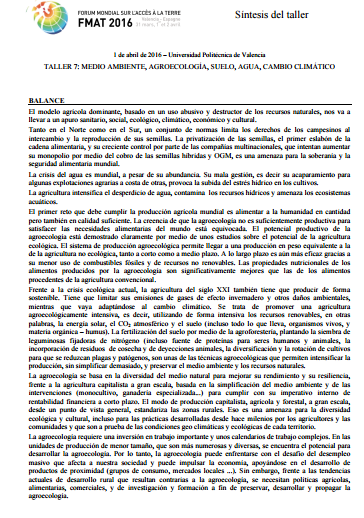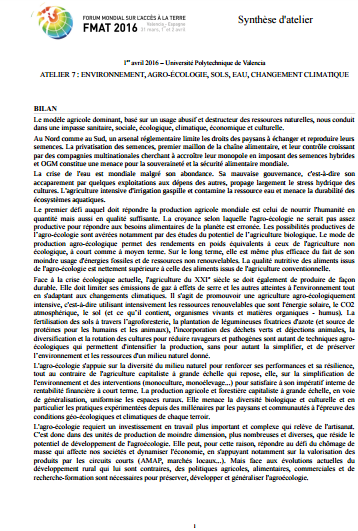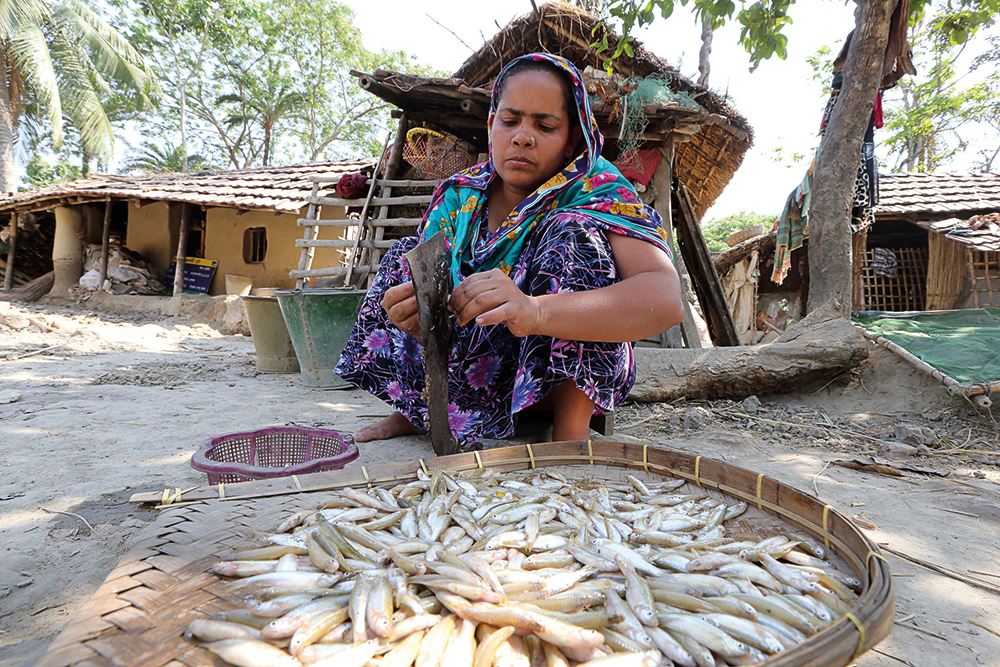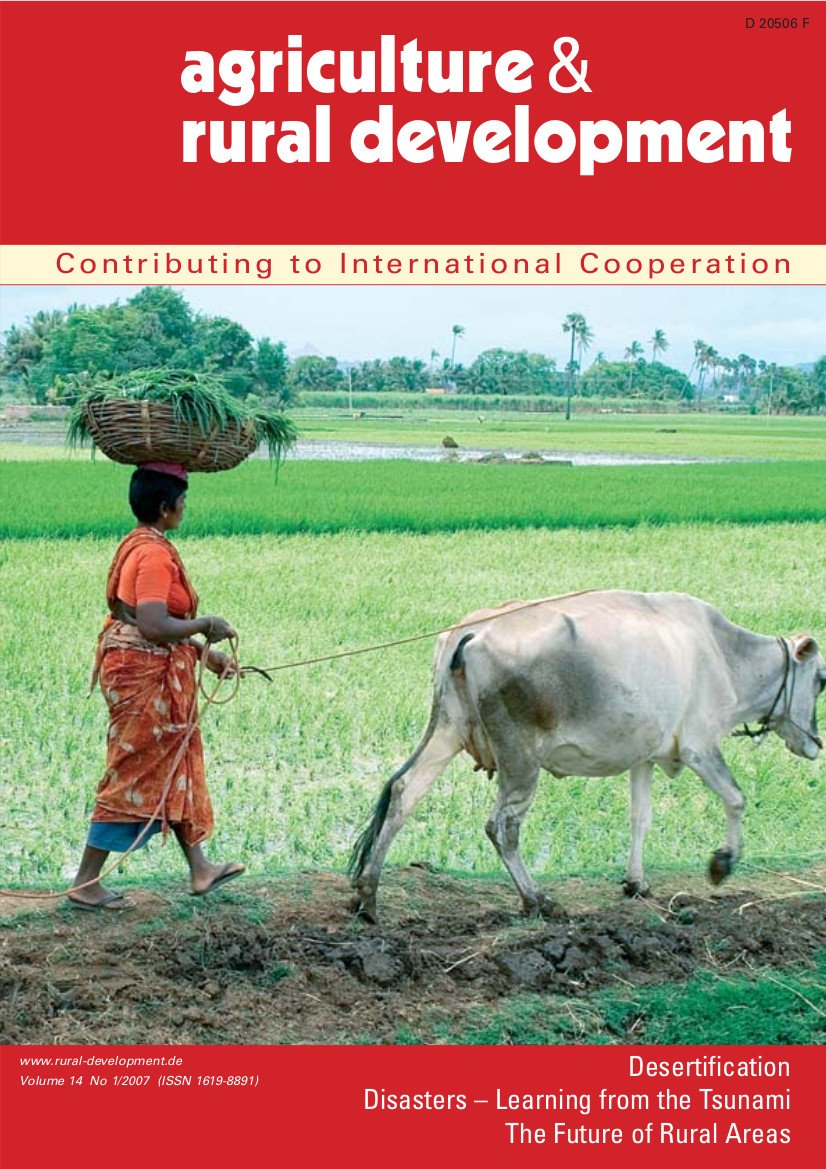WORKSHOP 7: ENVIRONMENT, AGRO-ECOLOGY, SOIL, WATER, CLIMATE CHANGE
The dominant agricultural model, based on the abusive and destructive use of natural resources, leads us into a health, social, ecological, climatic, economic and cultural impasse.
In the North as in the South a regulatory arsenal limits the rights of peasants to exchange and reproduce their seeds. The privatization of seeds, the first link in the food chain, and the growing control over them by multinational companies seeking to increase their monopoly by imposing hybrid seeds and GMOs poses a threat to global sovereignty and food security.






